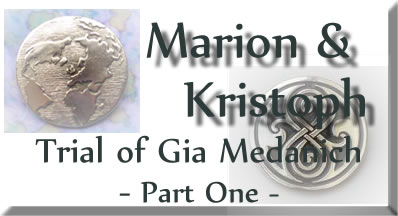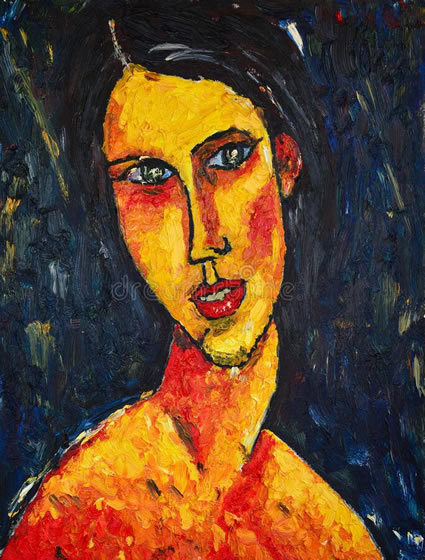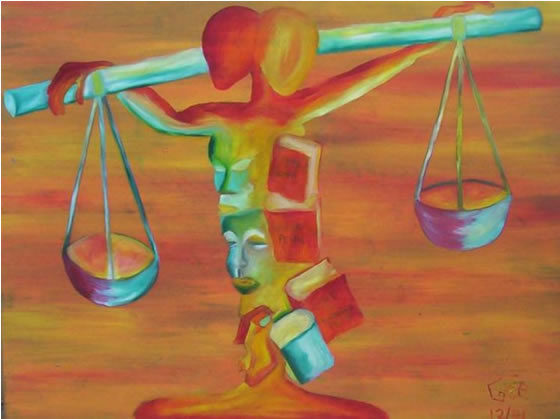

Marion usually enjoyed visiting Athenica. She loved the peaceful city of learning and culture.
But as well as the forum of philosophical discussion and the great observatory, the art gallery, library and museum of Gallifreyan history, Athenica was also the location of the High Court of Southern Gallifrey.
Even that had been a place she enjoyed visiting when Kristoph was the High Magister. She spent many pleasant lunches in his chambers with him, and sometimes stayed to see him dispense justice with a firm but even hand.
She would not have minded visiting to see her friend, Valena Arpexia, at work in the Inquisitor’s court. Kristoph had prepared her well for her work and she dealt with miscreants with the same even hand he did and with a firmness of purpose she almost certainly inherited from her father.
But today Marion wasn’t a mere spectator. Kristoph had asked her to attend a trial that was worrying him and report back to him on what transpired. His presence would only be a distraction and would give the case too much unwanted attention.
To that end Marion was not attending as the First Lady of Gallifrey, either. She wore the second hand Caretaker’s cloak that she wore to attend the theatre incognito and she travelled with Gallis Limmon as her only protector. He left the car on the roof of the Observatory and they walked to the court, entering by the public portal along with many other people dressed in Caretaker clothing who sat in the public gallery to watch the proceedings.
Valena Arpexia was the Inquisitor sitting on this day in the middle court. Dressed in a deep red gown with gold embroidery and a crisp linen collar high over her head, she looked dignified and capable. The assembly rose in respect of her rank and then settled quietly.
The accused was brought from the cells below through a door leading directly to the dock. It was a young woman dressed in a plain blue sleeveless robe. She was chained hand and foot and her head was bowed in shame. On a huge screen behind the Inquisitor’s chair her downcast face was shown in close up.
There were murmurs all around the public gallery at the sight of her. Marion noticed Valena looking at the woman. She kept her expression carefully neutral, but even so there was a flicker of her eyes that suggested a slight sympathy.
“Prosecutor,” the Inquisitor said sharply. “This woman may or may not be guilty of the crime she is accused of, but she is most certainly a woman. She may be given a little dignity. Remove the shackles and allow her to sit comfortably during these proceedings.”
The Prosecutor looked surprised by the suggestion, but the Inquisitor was not to be argued with. He nodded to the guards who unfastened the chains. The young woman sank down into the chair provided. She looked close to fainting. The Inquisitor told the court bailiff to bring a carafe of water to her. Only when she had taken a glass of cool water and was able to stand up steadily was the trial allowed to commence.
The Prosecutor, a tall, thin faced man dressed in black robes, drew himself up to his full height as he read out the charges.
“May it please the court to hear that Gia Medanich, aged two hundred and fifty years and a bound servant in the House of Gant, is charged with malicious acts of witchcraft which caused bodily harm to Lord Gant, his wife and son.”
“So heard,” Valena answered formally. “How does the defendant plead?”
Gia Medanich spoke so quietly when prompted that nobody heard her. Valena spoke directly to her, reminding her that she must speak for herself at this point.
“Not guilty, madam,” Gia managed to say a little more audibly. Then she managed to find voice for a longer plea. “I did not do it. On my mother’s soul I did nothing to harm his Lordship or his family. I am not a witch. I have done nothing wrong.”
“Silence,” The Prosecutor snapped. “This is not the time for your protestations. The evidence will be heard.”
“That is so,” Valena agreed. She turned to the defendant. “You will be given a chance to speak for yourself in the course of these proceedings. But it will do your cause better if you try to speak calmly and without emotion and stick to provable facts. Now, be seated and let us hear the case for the prosecution in that same calm manner.”
Gia nodded and sat down. She kept her head down and her face hidden in her hands as the Prosecutor began to offer his evidence.
It was slight enough. Gia Medanich was second cook in the Gant household. She had been in charge of the evening meal for the family on the night of Avry the First. She had prepared a clear watercress soup, freshwater lemon solda and green salad with a moon fruit sorbet for dessert. A red wine from Lord Gant’s cellar was also served. Some hours later, Lord and Lady Gant and their son all fell violently ill. Lord Gant was close to death for six hours before beginning to recover. His wife and his heir took three days before they were well. Meanwhile, his lordship had investigated the matter and concluded that a subtle poison had been put into the food. He immediately had the cook placed under arrest. Under questioning she admitted to having certain skills with herbs and having frequently used seeds and leaves gathered from the wild in her cooking. The soup on that night had been flavoured with seeds from the ripe pods left after Pellis flowers had finished blooming.
But Pellis seeds were as harmless as sesame seeds on a bread roll. Caretaker children picked them in the meadows and ate them as a cheap alternative to sweets. They were certainly not a witch’s subtle poison.
That fact was commonly known even to Oldbloods who had never had to pick seeds in the wild as a food treat. The possibility that the soup was poisoned was dismissed. But the Prosecutor had further evidence. Samples from all of the food, as well as the wine, had been preserved and carefully tested. Traces of a truly deadly poison had been found in the fish.
Marion felt a cold shiver when she heard the name of the poison that had made Lord Gant’s family so very ill. It had a long technical name in Gallifreyan, but it was commonly called Lady’s Bane and it was distilled from the stem of the woodland plant called Yellow Star-Flower.
She remembered Aineytta making it while Rodan made sweets at the other end of the table in the Dower House kitchen. She had talked about the uses it could be put to, some of them secretive and never to be discussed except among women.
Used improperly it was a poison, a deadly one that would make even a Time Lord so very ill that it would block his ability to expel noxious substances from his body. Lord Gant and his family were very lucky to be alive.
The patriarch of that Oldblood house gave evidence first. He was asked, first, to confirm that the defendant was his second cook, Gia Medanich, and then to describe what had happened on the evening in question. He talked about eating what had seemed to be a perfectly satisfactory meal and preparing to spend a quiet evening with his family when his wife began to be ill first, then his son, and then he, himself, succumbed. A physician was sent for at once and their lives were saved, but it had been a close thing, he said. He and his family could have been murdered by the vindictive woman who now stood accused.
“She stands accused,” Valena reminded him. “She is not yet found guilty. The word ‘vindictive’ should be struck from all records as a pejorative term.”
“Vindictive,” Lord Gant insisted. “She was infatuated with my son. I forbad her from seeing him in any capacity except as a servant and she tried to kill us all out of spite.”
“That’s a lie!” Gia exclaimed. “He was always pestering me. I didn’t want him….”
“If my son showed any interest in a common maid it is because she worked her witchcraft upon him and made him think he was attracted to her.”
“This is the point upon which I find myself perplexed,” Valena cut in. “I accept there is a case for malicious poisoning, though who was responsible for the act remains to be seen. But I ask why the accusation of witchcraft?”
“You know very well why, madam,” the Prosecutor replied. “Causing death by witchcraft is a much greater crime.”
“Only because of an archaic law that should have been abolished millennia ago,” the Defending Lawyer responded. “Madam, I implore you to set aside the fanciful idea that sorcery was involved and look at the plain and provable facts of this case. I think you will find that they are few enough once the merely circumstantial has been likewise dismissed.”
“I concur,” Valena d’Arpexia answered. “The law IS on the statute books and the charge HAS been laid. However, unless new evidence is brought to light I am dismissing that charge. I shall expect the prosecution to stick to proven facts about malicious poisoning and leave sorcery to the writers of children’s fables. Let us proceed.”
A young woman who looked almost as nervous as Gia was called to the stand. She identified herself as Retta Kuhn, a maid in the service of the House of Gant. She shared a room with Gia.
“Do you recognise this?” the Prosecutor asked holding up a small empty phial with an even smaller label upon it. The image on the screen behind Valena closed in on the label. The symbol for poison was clearly visible. The rest was handwritten. ‘Lady’s Bane, use with care’.
Marion recognised the handwriting straight away and understood one reason why Kristoph had been concerned about this case. His own mother stood to be implicated in the crime.
“That was on Gia’s shelf,” the maid answered in a tremulous voice. “On her side of the room. I saw it.”
There was something about the way she said that which didn’t quite ring true. The Defence Lawyer questioned her carefully, asking her which shelf the phial was on and where exactly on that shelf it was. The girl looked confused.
“All right,” she admitted. “It wasn’t on the shelf. I saw it when I looked in her drawer. But it’s still poison.”
“Why were you looking in Gia’s drawer?” the Defence Lawyer asked.
“I was looking for money,” she answered. “I needed some, and I knew she had some hidden away.”
“You mean you were stealing?”
The maid didn’t answer, but she flushed red and her guilt was there for all to see in close up on the large screen.
“This is not a reliable witness,” the Defence Lawyer declared. “Her testimony should be struck from the record.”
The Prosecutor protested, of course. The Inquisitor had the final say.
“The testimony should stand. Her motive for looking into the defendant’s drawer does not negate what she found there. Unless she changes her story it must stand. But the fact that she has admitted intent to steal will be noted in the official record and it will have a bearing on my consideration of the testimony. As for her behaviour within his household, that is a matter for Lord Gant himself to deal with. Let this witness meanwhile be dismissed. There is no further point to be made. We have established that the empty phial was in Gia Medanich’s personal property. What we have not established was why it was there or who put it there. Nor do we yet know what happened to the contents.”
“It was put into the food,” Lord Gant pointed out.
“That, in fact, has not yet been established,” The Inquisitor pointed out quite rightly. “At present it is merely supposition.”
Lord Gant did not look pleased, nor did the Prosecutor who stood and wielded the phial in front of the Inquisitor.
“I call Gia Medanich to give account of herself in the matter of this piece of physical evidence,” he said.
Valena had no option but to allow that. She reminded Gia that she was oath bound to tell the truth, even if it meant incriminating herself. Gia nodded and managed to confirm verbally that she understood, though her voice seemed to be failing by the minute.
“Do YOU recognise this phial?” the Prosecutor asked coldly.
“Yes,” she answered.
“Was it among your personal possessions in the room you share with Retta Kuhn in the household of Lord Gant?”
“Yes.”
“Did this phial contain a vile poison?”
“Yes.”
The Prosecutor held the phial upside down to emphasise that the seal was broken and it was empty.
“Did you poison the fish served to Lord Gant and his family with the contents of this phial?”
“No,” Gia insisted. “I got it for a different reason.”
“What reason?” the Prosecutor demanded. Gia shook her head and hid her face in her hands. “WHAT reason?” he repeated.
“I cannot say,” she answered. “I cannot.”
Marion held her breath as the girl came as close to crying as a Gallifreyan could, rocking back and forward on her seat and keening in a low and heart-rending tone.
She had suddenly remembered one of the most desperate uses for Lady’s Bane. If that was what Gia had procured it for, no wonder she didn’t want to tell the whole court.
The Prosecutor repeated his question three times with increasing agitation. Gia simply turned in on herself, unable to speak at all.
“Enough,” Valena demanded, finally. “There will be a thirty minute recess while the defendant composes herself and consults her legal representative about her answer to the question.”
The Prosecutor was not happy about that, but he had very little choice. The Inquisitor had spoken. The court was adjourned.
“I think I need a little air myself,” Marion said to Gallis. “Will you walk with me?”
“Of course, madam,” he answered dutifully. He took her arm and guided her out of the busy courtroom. They went out into the quiet, peaceful plaza and sat for a little while.
“I don’t think she is guilty,” Marion said in a quiet tone. She wasn’t sure if it was appropriate to be talking about the case outside the courtroom, but she had so many thoughts in her head, she felt she had to speak or burst.
“Nor do I,” Gallis said. “Though if she were, I would not be surprised.” Marion was startled by his words and looked at him curiously. “Servants know things that our Lordships often don’t hear. Lord Gant’s heir is a bódéách.”
The word he used was Low Gallifreyan, the language most of the most colourful swear words used by both the Caretakers and the Aristocrats came from. But it wasn’t a swear word. Gallis would never say such words in front of his Lady. A bódéách roughly translated to English was something like a blackguard or cad – words Marion had really only seen used in eighteenth century novels.
“He uses young women,” Gallis added.
“Sexually, you mean?” Marion asked.
“Yes.”
“If he had used Gia that way… she might have wanted to poison him. I see what you mean. But I really don’t believe that she did. I hope there is some way to help her. I wish I could.”
“You can’t. This is why his Lordship asked you to watch the trial incognito. Gia was born on the de Lœngbærrow estate. Her mother was a former servant in Mount Lœng House. She left the service to get married. Gia found employment in the Gant Household when she was old enough to work. His Lordship, as you know, has concern for all the children of his demesne, especially when they are in trouble. But as Lord High President he must not be seen to directly influence a criminal case. Even your official presence would be seen as inappropriate.”
“Kristoph was very vague about it. I wish he had explained fully.”
“He doubtless did not wish to burden you with the details. We should go in again, now. The trial will be restarting.”

 |
 |
 |